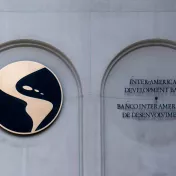In June 2018, the European Commission installed a Technical Expert Group to develop a classification for sustainable finance. That human rights considerations are almost entirely absent from the group’s mandate considerably weakens the current approach, criticises Germanwatch in an open letter alongside other pressure groups.
Recently, the debate on sustainable finance has picked up speed. Yet, major challenges remain. One central problem concerns the availability of information. For lack of unified standards, investors do not know which investments truly are sustainable.
To address this problem, the European Commission seeks a unified classification (a so-called ‘taxonomy’). It wants to determine sustainability criteria which, when translated into standards and labels, allow for the straightforward identification of sustainable investments. A legislative proposal from May 2018 aims to initiate the development of such a taxonomy.
The legislative proposal was promptly followed by the establishment of a Technical Expert Group (TEG). The TEG is supposed to start with environmental aspects. It will first present a taxonomy for climate change mitigation activities by the beginning of 2019. Then, by mid-2019, it is meant to expand this taxonomy to include climate change adaptation and other environmental activities (regarding water and marine resources, circular economy, pollution, and healthy ecosystems).
A driving factor for these measures is the global political response to climate change, most notably in the form of the Paris Agreement. Finance plays an important role to reach the ambitious targets the agreement lays out. This role comprises a shifting and a mobilizing dimension: On the one hand, all capital flows must be made compatible with the Paris Agreement; on the other hand, major investment gaps need to be filled to achieve the adaptation and mitigation targets.
To date, finance does not deliver what is needed – and yet it is all too often neglected in debates about achieving climate and sustainability targets. Thus, the Commission’s actions are welcome steps in the right direction. Fortunately, moreover, the creation of the taxonomy is only one of several upcoming developments. In its “Action Plan” on “Financing Sustainable Growth” from March 2018, the Commission – building on insights of the “High Level Expert Group on Sustainable Finance” – also called for better integrating sustainability considerations into fiduciary duties and financial disclosures.
While the swiftness with which the Commission is promoting sustainable finance is laudable, the currently specified mandate of the TEG has serious shortcomings, 14 NGOs and trade unions observe in an open letter to the Commission, which Germanwatch has co-signed.
Human Rights have to be an integral part of any climate mitigation and adaptation activity. Financial activities can be environmentally beneficial while at the same time violating human rights (as is the case with some biofuel or dam investment projects). Under the current proposal, the only human rights safeguards the environmental taxonomy has to incorporate are the conventions of the International Labour Organization (ILO). Moreover, not one of the TEG’s 35 members is a human rights expert.
This is clearly inadequate. Instead, the signatories recommend the following to the Commission:
- First of all, the taxonomy’s ‘do no harm’ approach should go beyond environmental considerations by referring to human rights standards.
- Likewise, proposed minimum safeguards should draw on key international human rights documents in addition to the ILO conventions.
- Apart from overarching principles, the taxonomy should also include activity-specific social considerations.
- Furthermore, the relevance of personal expertise must be acknowledged. Human rights experts should be granted a more central role in the ongoing process, both as permanent advisors to the TEG and, later on, as members of the Platform on Sustainable Finance.
Finally and in addition to the vital incorporation of human rights considerations into the environmental taxonomy, the signatories also urge that the TEG consider good governance constantly and that the Commission expedite the development of a taxonomy regarding socially beneficial activities.
None of these suggestions are meant to further complicate the already ambitious work of the TEG. On the contrary, the signatories firmly believe that only by implementing these demands the Commission will be able to provide a classification which truly guides sustainable investment.
This publication has been supported by the Stiftung Mercator. Germanwatch is responsible for the content of this publication.




